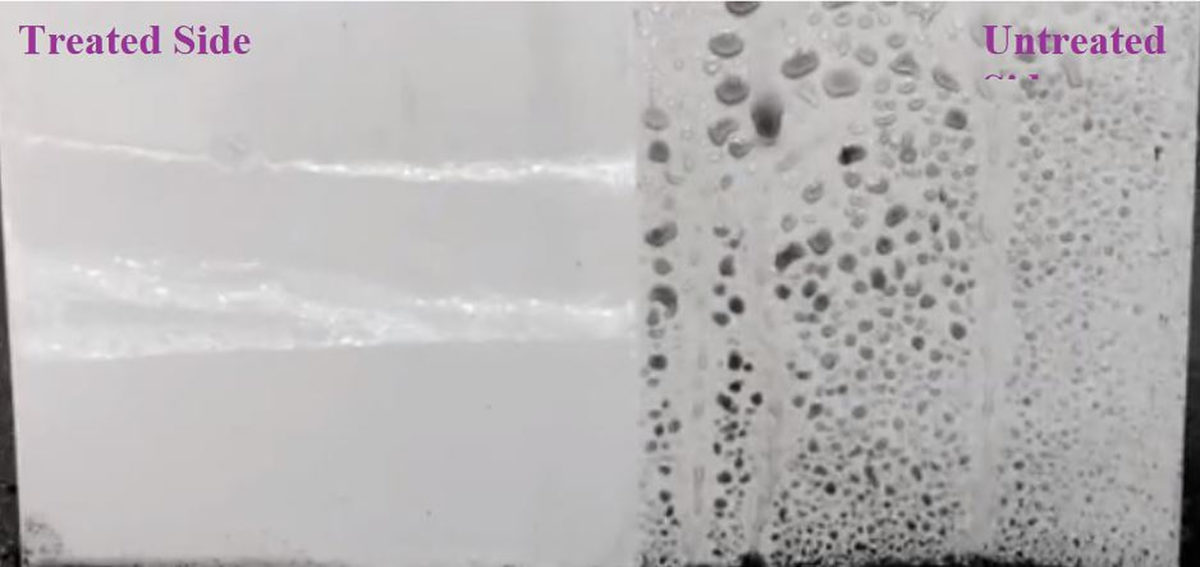From pv magazine Global
French chemical company Axcentive and solar module manufacturer Photowatt, a unit of France-based energy giant EDF, are jointly developing a self-cleaning coating for solar panels under the umbrella of the European project PV Impact, which is being coordinated by the Association of European Renewable Energy Research Centers and is aimed at stimulating the private sector to spend more on PV research, development and innovation in Europe.
The coating will be based on photoactive nanotechnology and commercialized under the brand name Exocoat. It is described by the two companies as a self-cleaning coating for glass substrates, activated by light. “Under light radiation, the coating creates radicals which breakdown any organic soil or contamination,” they said in a joint statement. “Airborne particles such as volatile organic compounds (VOCs) and nitric oxide (NOx) are also eradicated.”
The coating relies on a super-hydrophilic surface that makes the water spread out on the module surface immediately, thus avoiding light scattering effects upon rain. Furthermore, this surface is said to increase the self–cleaning effect by letting water flow under the dirt and remove it by gravitational forces. “A more practical method to follow the effects on the surface is its response to a powdered substance that would cause fouling, and the effect to water spray. The hydrophilic surface of the coating will be less statically charged and, as a result, will attract less dirt,” the statement reads.
Scientists from the two companies tested the coating on a carbon powder against a plate that was half coated with Exocoat itself. They sprayed water on the plate and found that the coated side showed full wetting and self–cleaning due to the water sheeting effect. “A vital point for the performance of Exocoat as self-cleaning coating is its correct application on the glass/solar panel surface,” said Arno Schut, innovation manager at Axcentive. “Incorrect application can lead to inferior technical performance. Axcentive has written application protocols based for hand and automatic spray application that were developed in the lab and need to be tested on site.”
The two companies are currently seeking to improve their technology by seeking spray equipment manufacturers.
This content is protected by copyright and may not be reused. If you want to cooperate with us and would like to reuse some of our content, please contact: editors@pv-magazine.com.









By submitting this form you agree to pv magazine using your data for the purposes of publishing your comment.
Your personal data will only be disclosed or otherwise transmitted to third parties for the purposes of spam filtering or if this is necessary for technical maintenance of the website. Any other transfer to third parties will not take place unless this is justified on the basis of applicable data protection regulations or if pv magazine is legally obliged to do so.
You may revoke this consent at any time with effect for the future, in which case your personal data will be deleted immediately. Otherwise, your data will be deleted if pv magazine has processed your request or the purpose of data storage is fulfilled.
Further information on data privacy can be found in our Data Protection Policy.